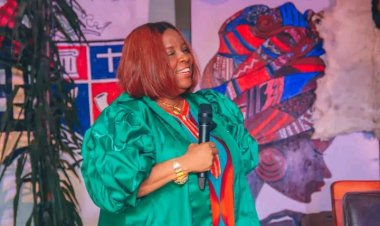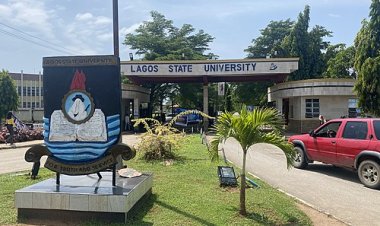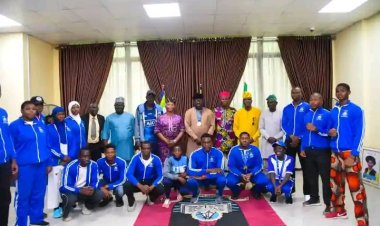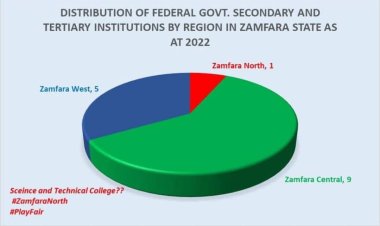DELSU VC, Professor Egwunyenga, Advocates Cutting Edge Research for Societal Development
The Vice-Chancellor of Delta State University, Abraka (DELSU) Professor Andy Egwunyenga has drawn attention to the imperative of making research output in Nigerian Universities and research institutes available to the market place, where their impact could be felt.
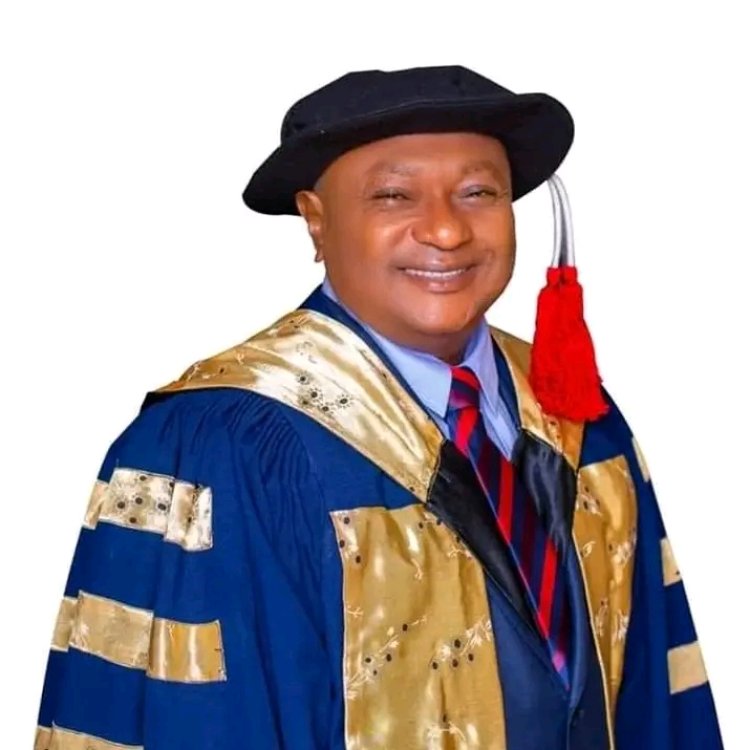
The Vice-Chancellor of Delta State University, Abraka (DELSU) Professor Andy Egwunyenga has drawn attention to the imperative of making research output in Nigerian Universities and research institutes available to the market place, where their impact could be felt, Myschoolnews report.
Professor Egwunyenga was speaking on Tuesday at the opening of the 7th International Conference of the Faculty of Science with the theme “Unleashing the Potentials of Science for Innovative and Transformative Economic Diversification.”

The Professor of Applied Parasitology and Entomology, while observing that the Conference was truly international because of the quality and geographical spread of the academics in attendance and those attending virtually, congratulated the University on its cutting edge research which had made it globally competitive.

The Scientist of note expressed dissatisfaction with the apparent gap between the test tube and the field. “How can scientific research be taken to the streets?” he asked, rather rhetorically. “If our intellectual efforts end up only in journals, it means we have not served our people well. We must understand that our people do not have light, they do not have food and the quality of life is poor.” He pursued his thesis further by arguing that science must be more functional to society by addressing the day-to-day issues that ‘plague’ the people such as the burden of tropical diseases, the non-employment of youths and many others.

Professor Egwunyenga expressed some thoughts on the innovative DELSU Faculty of Science Business Canvas Model (DELSU-FOS-BCM) which has been described as “an effective way to bring all the elements of an intended business venture strategy together from initial ideas (researches in our case), costs to business purpose/revenue streams. Thus BCM functions as a guide mapping business ideas (our research ideas) into implementable business strategic matrix elements that will lead to the accomplishment of the business purpose”.

The foremost administrator who was recently conferred with the fellowship of the Parasitological Association of Nigeria, emphasised the need for scholars to be strategic and deliberate on how to be entrepreneurial in thought and action, adding that government had a role to play by embracing a deliberate policy change that would ensure intersection between government policies and University activities.

Welcoming guests to the occasion, the Dean of Science, Professor Austine Atonuje expressed confidence that the seminar session would be the source of innovative ideas, concepts and breakthroughs in the development of science and technology in the future, especially in the field of sustainable development, adding that it would enable the building of productive dialogue among participants of different institutions and research centres.

He specially lined up for gratitude, the Vice-Chancellor whom he described as a ‘visionary leader’, the key note speaker and Dean, College of Science, University of Witwaterstrand,. Johannesburg, South Africa, Professor Nithaya Chetty; lead speakers, Emeritus Professor Ikenna Onyido, Department of Chemistry, Nnamdi Azikwe University, Awka, Nigeria; Professor Ogi Okwumabua, Department of Pathology and Population Medicine, Midwestern University, Glandale, Arizona, USA. Woel-Jiun Guo, Department of Biotechnology and Bio-industry Science, National Cheng Kung University, Tainan City, Taiwan and a host of others.
In a goodwill message, the Delta State Commissioner for Higher Education, Professor Nyerovwo Tonukari, who was represented by Mrs. Stella Agbayeke, a Director in the Ministry noted that the theme of the conference was apt and should be domesticated with a view to expanding opportunities in keeping with the M.O.R.E agenda of the Gov. Sheriff Oborevwori administration in the state.
The Commissioner, who is a member of the faculty, urged the Conference to explore and utilize the natural resources abundant in the state to enhance its prosperity and competitiveness, adding that such a development would largely depend on how they navigated the issues. He suggested that the curricula of science programmes in the Universities should be rejigged and adapted to the environment. “As a state, our students should be imbued with the knowledge and skills required for success in today’s world.

In a thought-provoking keynote address entitled “Nurturing Entrepreneurship thinking in our Universities in the 21st Century”, Professor Nithaya Chetty advised that Universities needed to become more relevant in the way they reacted to the sweeping changes in the world, adding that Artificial Intelligence (AI) was growing and impacting the way things were done.
He advocated a strong synergy between industry and University to increase more employable graduates but noted that the critical goal was “How do we instill entrepreneurial thinking among our Universities? He explained that his suggestion for Universities and industries to work together should not be misconstrued that “Universities are subservient to industry”, even as he advised Universities to be more “fundamental and practical” in finding solutions to the problems in society. His words: “Government and industry need to support Universities upstream areas so that they can push ideas down to the entrepreneurship line”. One of the highlights of his address was the suggestion of a dual study programme (Ph.D + PG Dip) i.e a candidate pursuing a Ph.D with entrepreneurship in mind.
In his lead paper entitled “Science Research and Academic Development (and Diversification) Emeritus Professor Onyido regretted that most of the research output in the Nigerian University system was merely on the shelves and as such was not of much importance adding that government should develop policies that trigger innovations that would get to the market place and attract funding.
Read also: DELSU Lists Out Names of Students Involved in Exam Malpractice for 2022/2023 Session
In providing a context for the Nigerian situation, the University of Ibadan First Class graduate (1974) in Chemistry remarked that the Nigerian economy was interesting; having been founded on false foundation and premise with sole dependence on the depleting resources from fossil fuel. His solution: “We must diversify our economy and increase the contribution of the non-oil sector”.

Emphasizing the importance of science, he cited Nehru, a former Indian Prime Minister to the effect that “The future belongs to science and those who make friends with scientists.” He believes that the poor attitude of government towards lecturers is a major disincentive for the growth of innovation in the country. He suggested the need for a paradigm change because “if you challenge lecturers they will do wonders. No country develops with innovation from outside”.
Read also: DELSU SUG Calls on Students to Desist From Payment of Fees Until Final Resolution
Contributing to the ‘knowledge pool’ of the conference, Professor Ogi Okwumabua spoke on “Contribution of Transnational Science and Partnerships to Economic Prosperity”.
The international conference which was well attended, attracted eminent personalities from government and the academia including Hon. Dr. Odinigwe Odigie, Commissioner for Science and Technology; Hon. Samuel Oligida, Commissioner for Trade and Investment and on the academic side, the Deputy Vice-Chancellor, (Administration), Professor (Mrs) Rosemary Okoh; Deputy Vice-Chancellor, (Academic), Professor Ochuko Anomohanran; Registrar, Mrs. Rufina Ufiofio; Bursar, Mrs. Otimeyin Ekakite-Omojuwa, and University Librarian, Dr. (Mrs) Josephine Onowhakpor.

